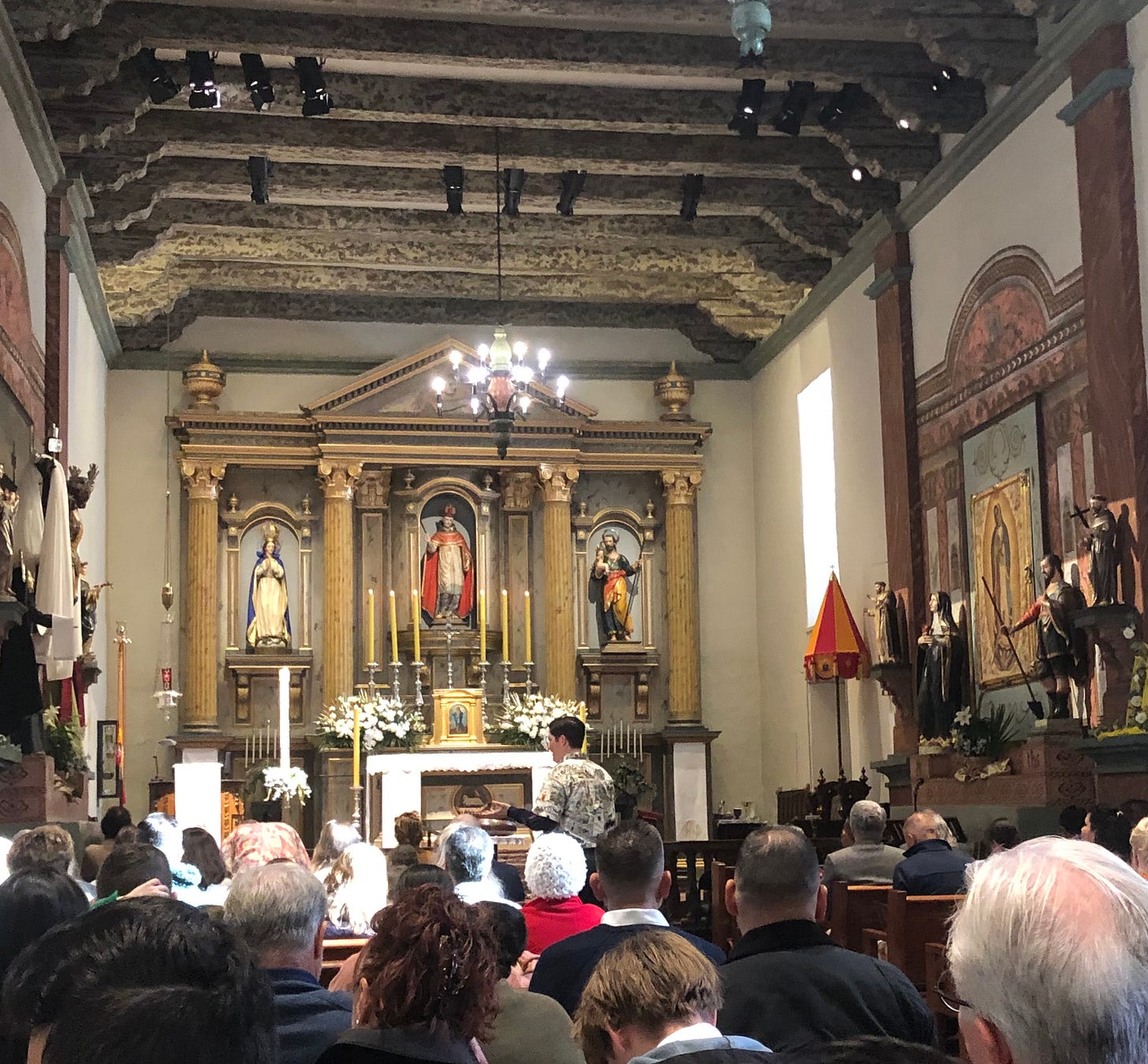When the Pope died, I was talking to a Rabbi.
Which is not technically true, though it is a great line. We were having dinner at the Athenaeum and I was grilling our local Rabbi about Jewish notion of the afterlife and the Second Temple Period when he said he was sorry, but Pope Francis has just died. Apparently, our local Rabbi received a New York Times push notification.
It’s hard to say it was a blow. Pope Francis was old. I saw him a decade ago and he couldn’t stand up. But it was a particular feeling — a feeling of being put among my tribe. The Catholics. And now our king is dead.
I don’t know why I’m still a Catholic. I tried to become a Buddhist in college, I really did. But you read enough Buddhist thought and you realize it’s more philosophy than religion. So I’m a Catholic because my mom was a Catholic and her mom was a Catholic and so on and so on1. I always think of that Scorsese interview where he said: “there are many pathways, and I think that the one you choose depends on what culture you’re a part of. My way has been, and is, Catholicism. After many years of thinking about other things, dabbling here and there, I am most comfortable as a Catholic.”
So, like Scorsese, I’m a Catholic because that’s my lane. I’m not a good Catholic, mind you. I go to mass maybe once or twice a month. But I go and I try to go and I think about the faith a lot.
It’s tough out here for liberal Catholics in America. The presently dominating brand of American Catholicism is a medieval traditionalism that ignores the fact that Jesus Christ was a human being and instead focuses entirely on the institution that followed him. These people, the TradCath converts like JD Vance and the Dimes Square crowd treat Catholicism as though they’re lawyers in the heat of the Inquisition.
All these people, this TradCath coterie, they didn’t like Pope Francis. They think Vatican 2 is a commie plot and that the mass should still be celebrated in Latin (despite the fact that there’s almost no evidence — aside from perhaps his brief run-in with Pilate — that Jesus Christ spoke Latin). They wanted a pope like Cardinal Burke, who is all about the big fancy hats and less about the Sermon on the Mount.
So then I’m driving home from a surf session in Orange County last week and I’m listening to NPR when they cut into the regular broadcast and announce that there’s white smoke coming from the chimney! We have a new pope! And then, a moment later, they say he's an American — this all comes official, mind you, the conclave doesn’t leak.
And it becomes clear, after a moment, that this a thinking-man’s pope. He’s an Augustinian2. And then he mentions Pope Francis twice in his speech (I don’t know what they call the Pope’s first speech from the balcony at St. Peter’s but I’m sure there’s an official name for it) and I think, my god, we may be going to hell in a handbasket around here, but at least the Pope isn’t going to insist on a Latin mass.
The nearest church to me, by the way, celebrates the Latin mass. All the women have to wear veils and they probably have to take the Eucharist on their tongues. Absurdism, if you ask me. Hand these people a book of Simone Weil and they’d catch on fire. But here’s the hidden point, the one I’ve been driving toward: that idea, the Catholic Church, like the American Dream, exists for all of us; and yet we have to acknowledge that it’s a human institution and is therefore flawed.
I don’t want to get all hippy-dippy and I’m certainly not trying to convert anybody, but this is a big tent. It’s a two-thousand-year-old tent. And there might be some holes in it but we need people like Pope Leo XIV and Dorothy Day. And, it sucks, but we probably also need people like Steve Bannon or Mel Gibson (both strident TradCaths) too. At the very least, we need to be able to tell them that they’re welcome in this tent. Because this tent isn’t about politics or even dogma, it’s about something larger. We are speaking in metaphysics here, and that’s too broad to make political.
so in terms of how Catholic we are, my grandmother’s maiden name is Casey. Her great-uncle was a friar named Solanus Casey who was beatified by Pope Francis in 2017. So, we’re a few miracles short of a saint in the family.
St. Augustine is one of the major figures in early Catholicism (just after it morphed from Judeo-Christianity). Augustine could be a prick sometimes with the other sects, and his ideology probably has a good bit of blood on it. But there’s a way to read him that’s just straight-up beautiful philosophy. He also wrote an autobiography that really could be a Dostoyevsky subplot.






As an agnostic raised by agnostics, I do appreciate your reflections on Catholicism. I apply this to all religious institutions.